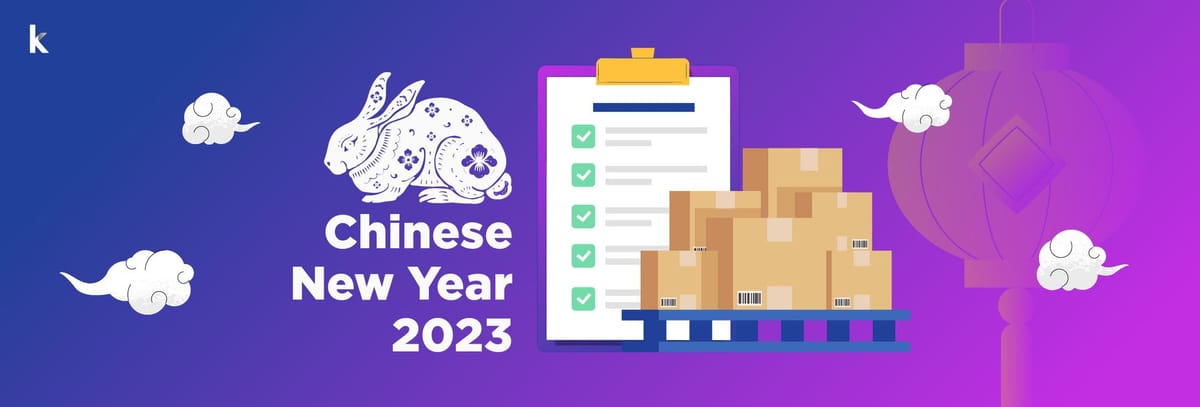What is Chinese New Year and what does it mean for Indian businesses?

Chinese New Year, a.k.a Lunar New Year, is a yearly 15-day celebration celebrated in China and by Chinese populations worldwide that starts with the new moon, which, by Western calendars, falls anytime between January and February (the next Chinese New Year will be observed on January 22nd, 2023).
Why is it important to Indian Businesses?
Even though the festival is merely a 7-day national holiday in China, suppliers, partners, and contract manufacturers may experience a painful 4-week production halt. Almost everything closes down during this time, including the government and companies, while ports and customs often run on a minimal workforce and concentrate on perishable and priority goods.
Challenges faced during CNY
"The most important thing during Chinese New Year is planning your funds well in advance because that is something brands might not be ready for. If you do not have the funds, no matter how much you plan on the inventory, you will lose out."
- Abhishek More, Director, XIMIVOGUE
- Delayed delivery of inventory across businesses in India,
- Low quality of products delivered, especially short-lived products,
- Higher cost of products if they are ordered close to the Chinese New Year week-off, and
- Delayed payments due to the holidays.
How can you problem-solve this?
In order to sustain their momentum from the New Year and avoid having their business negatively impacted by the Chinese trade issue, Indian D2C businesses are redefining the game in this area.
To prepare your business for the upcoming Chinese New Year, here are a few suggestions:
1. Plan Ahead
Planning for both the period before and after the feast is advised because the effects of the CNY may continue until the following spring. As a result, create a solid demand picture that includes both structured data (orders) and unstructured data (sentiment analysis, weather patterns, events). You can use this to make sure your business has enough supply. To reduce any potential gaps, it is recommended to step up monitoring and communication in the months before and after the vacation.
2. Fast & Flexible Capital for inventory flow
Choose finance solutions to pay for these new initiatives that won't change your equity structure or add to your documentation burdens. You can benefit from supplementary capital forms including Revenue Based Financing, bridge financing, and invoice discounting in this situation.
3. Check for alternatives
It might make sense to look at various modes of transportation for urgent deliveries, such as switching from a ship to a rail vehicle or thinking about a different sea-air combination. Furthermore, it will be advisable to use alternative procurement techniques that draw on suppliers outside of China to reduce or completely eliminate risk.
4. Be prepared for bulk orders & a turbocharged business
Better returns on your costs are directly correlated with investing growth capital in high ROI use cases like working capital, performance marketing, and raw material sourcing.
More than 300 founders are gearing up to stay ahead of the market disruption curve and as India’s leading RBF investor, we understand how businesses need to be proactive, to stay on the path to growth & become bigger.
If your business is seeking growth capital to stay on course, you are in the right place! Apply now 🎁.




